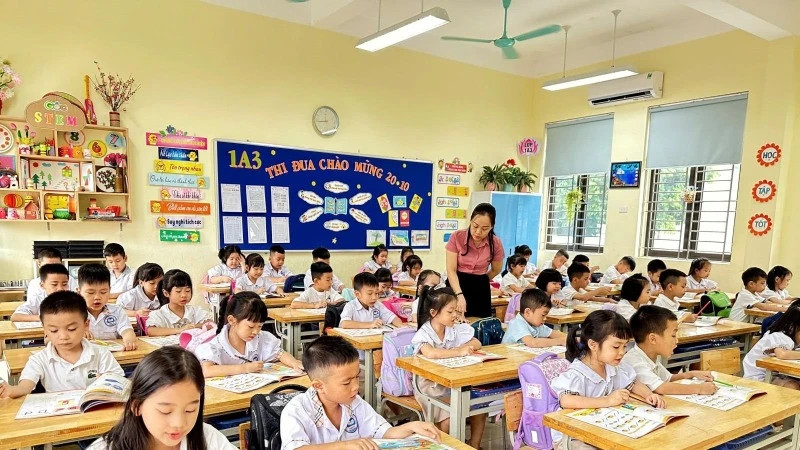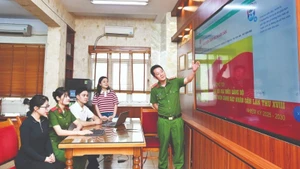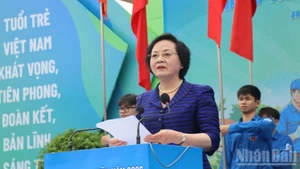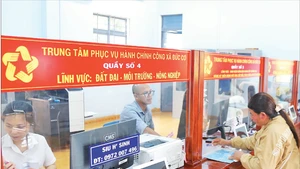According to Director of the Vietnam Institute of Educational Sciences, Professor, Dr. Le Anh Vinh, the quality of English teaching in schools has improved over the past 10 years, contributing to improving students’ foreign language skills.
It is necessary to view foreign language teaching and learning in a global context, where foreign languages are not only a communication tool but also a means of accessing knowledge. Using English in teaching subjects will create a natural language environment, helping students develop multidimensional thinking and the ability to adapt to challenges.
To realise this goal, Director of the Hanoi Department of Education and Training Tran The Cuong said: In recent school years, Hanoi has sent hundreds of teachers with good foreign language skills to study and learn from the experiences of countries with advanced education. After returning, the group of teachers established clubs to continue activities and train teachers in suburban schools.
In the coming time, the education sector will focus on training and improving the qualifications of teachers in other subjects so that they can teach foreign languages in parallel with Math and Natural Sciences.
At the same time, the shortage of teachers will be overcome by recruiting new teachers, signing contracts and cooperating with foreign language centers to compensate for the shortage of human resources.
When teaching, the first requirement for teachers is to strive to regularly improve their knowledge to be good at their profession, have skills and pedagogical methods. “We cannot let parents and students judge that teachers still have wrong pronunciation,” Tran The Cuong emphasised.
Le Thi Thanh Huyen, a teacher at Chau Son Primary School (Ba Vi District, Hanoi) commented: Making English a second language in schools is completely feasible but requires a long roadmap and coordination from many social resources, in which English teachers are the pioneers and core force.
According to Huyen, English teachers need to be trained in courses on teaching cultural subjects in English. This will contribute to the early realisation of the goal of building bilingual schools.
However, according to lecturer of the University of Foreign Languages (Vietnam National University, Hanoi), Dr. Tran Thi Lan Anh, if the testing and assessment methods are not changed, the teachers’ methods will not change.
In addition, teachers need to improve their communication and pronunciation skills and need more financial support and certificates to recognise teachers’ efforts in improving their capacity.
Lecturer of the University of Foreign Languages (Vietnam National University, Hanoi), Dr. Nguyen Thu Le Hang said: It is necessary to enhance two-way communication and interaction for students through many forms such as: Debating, presenting, reporting through learning.
Assessment forms need to promote the ability to use language in life. Along with that, it is necessary to increase the application of Artificial Intelligence (AI) technology to increase access for students in regions, especially disadvantaged areas. From there, create an online system so that students can work, even with their friends abroad.
According to Dr. Nguyen Thi Mai Huu, Head of the National Foreign Language Project Management Board, Ministry of Education and Training, policies related to foreign language development are an urgent need for all schools from primary to university.
With different starting points and conditions of each educational institution, to make English the second language in schools, it is necessary to prepare steps to make it a reality. The goal is that by 2045, schools can use English as a second language, serving the teaching and learning of other subjects and communication in schools.
It can be seen that to make English the second language in schools, it requires a long-term commitment from the entire education system, family and society. Schools need to innovate comprehensively from improving the quality of staff to changing learning mindset. When English becomes a communication tool, Vietnamese students will have more opportunities to reach out and affirm their international position.
















